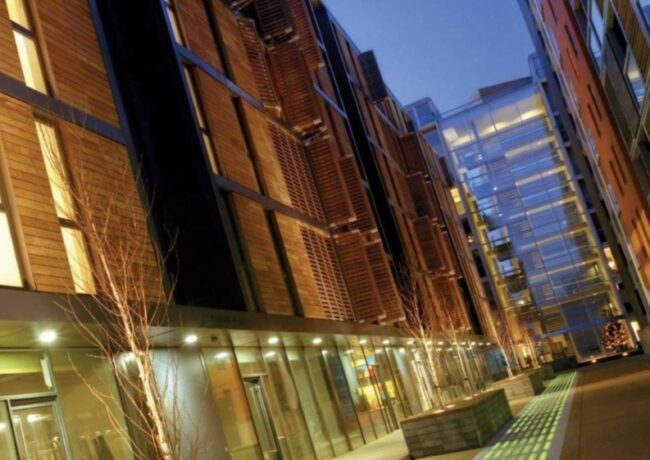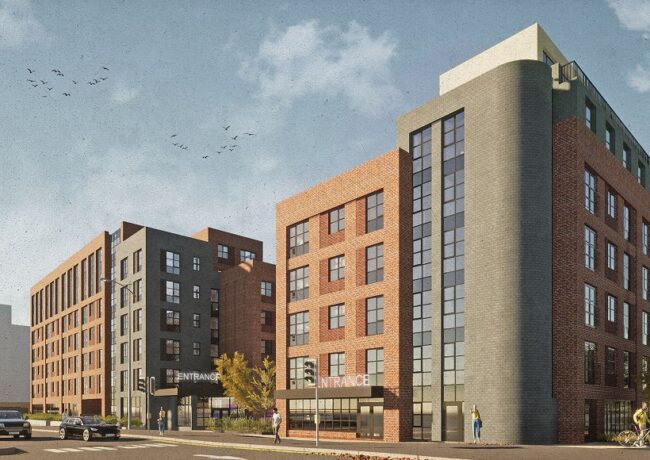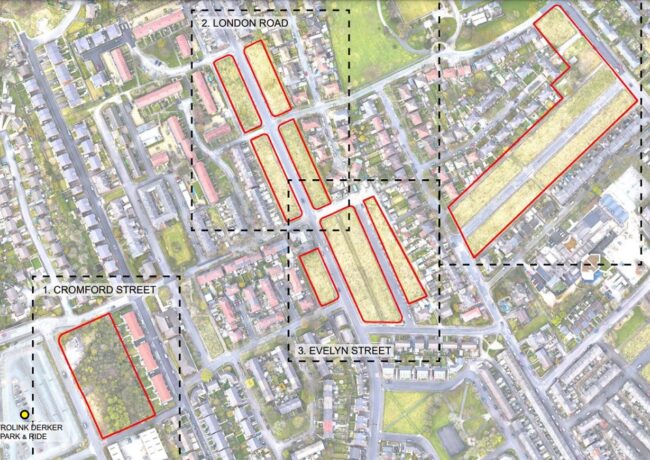Government accused of a job half-done on safety
Greater Manchester leaders and residents of at-risk buildings have said that the Government’s pledge of £200m to replace ACM cladding on private buildings stops short of addressing the problems they face.
Housing minister James Brokenshire announced yesterday that around £200m is to be made available to remove and replace unsafe aluminium composite material cladding from around 170 high-rise, privately-owned buildings nationally.
The move follows various instances of building owners trying to pass on the cost of works to leaseholders. In a celebrated local case, Manchester City Council worked with residents of two blocks at the Green Quarter development, with the freeholder eventually agreeing to meet the costs.
Concerns have arisen though over wider fire safety issues that arose following checks carried out in the wake of the Grenfell disaster. A more robust testing process showed that not only was ACM cladding dangerous, but that many buildings had unsafe insulation and inadequate fire-breaks, despite being compliant with building regulations of the time. In addition, Place North West understands that the Government is also believed to currently be testing four further cladding products for safety.
Manchester specifically was faced with 16 ACM-clad publicly-owned blocks and 15 privately-owned blocks. Works on the public buildings, covered by a £400m fund, are to be completed by the end of June. Arrangements for 10 of Manchester’s private buildings have been resolved successfully, including six where the freeholder was liable, covering student accommodation and hotels. But there are further buildings, not ACM-clad, but now found to be unsafe and requiring works.
There remains a lack of clarity over eligibility for the funding – whether buildings partly clad with ACM are eligible, how much will be available for those buildings with ACM alongside other issues. Most pressing for campaigners is their estimate that less than half of the Manchester buildings at risk will be helped.
Residents at buildings including Skyline Central 1 and Burton Place have been among those sent demands of more than £20,000 per household in order to address issues they feel have been caused by inadequate building regulations and inadequate Government support. The Manchester Cladiators pressure group has been fomed, demanding Government do more to support their case.
Cllr Suzanne Richards, Manchester City Council’s executive member for housing and regeneration, said: “We do not differentiate between residents with Grenfell-style ACM cladding and other fire issues and strongly believe the Government should provide funding for all affected residents.
“It is simply unacceptable that some residents have won the ‘cladding lottery’ and others are left facing stress and life changing bills of up to £80k each. The Council will continue to give its full support to Manchester Cladiators until every affected Manchester resident feels safe in their homes”
Sam Cole, a resident at City Gate in Castlefield and a co-founder of Manchester Cladiators, said: “Although it is welcome to finally learn that the Government has heard our calls for help, there are still many unanswered questions about this proposed cladding fund. Many Manchester residents with similar problems to us are also unlikely to benefit from this fund.”
Among home-owners within the various buildings, there is anger and fear over their futures. Speaking to Place this morning, Burton Place resident Katie Peate said: “It’s not realistic to expect people to pay up to £80,000 – we feel helpless, and because developers and freeholders can simply say ‘Building Control signed it off’ the Government is our only hope. It feels like 50% of the job has been done.
“We appreciate that things change, and people learn more about materials, but these things only came to light following Grenfell, and to act on cladding but not other areas doesn’t add up. There needs to be better building control. The big fear is that this blows over and the news agenda moves on.”
Salford mayor Paul Dennett, who chairs the Grearer Manchester High Rise Task Force, said: “I welcome the announcement by Government. However, this does not go far enough to ensure the safety of residents in high rise buildings. Nor is there yet enough clarity as to which buildings are and are not covered by this announcement.
“We already know that building regulations are simply not fit for purpose following Government’s own commissioned independent review. Today we call again on Government to make further funding available urgently for all blocks and to cover all essential fire safety work. Leaseholders must not be left to pick up the bill.”
Dennett also voiced his concern that to pay for the ACM programme, Government might seek to shuffle its resources at the expense of programmes such as affordable housing. Brokensihre has, according to reports, been warned by senior civil servants that the £200m committed in this area is not to be repeated.





Confusion over the term ‘ACM’ is very likely. Asbestos containing materials ACM’s have the same acronym as aluminium cladding materials. Care is needed…….
By Jeremy
Great point, Jezzer.
Two very controversial building materials with the same acronym is fraught.
Main point: I don’t think anyone has really woke up to the sheer scale of fire integrity problems with modern building facades. It’s ten times worse than anyone realises. The fragmentation and sub-sub-sub(!) letting that goes on within the facade / envelope / cladding suppy chain is severe.
By pasquire
Not all acm is the same!
By Graham